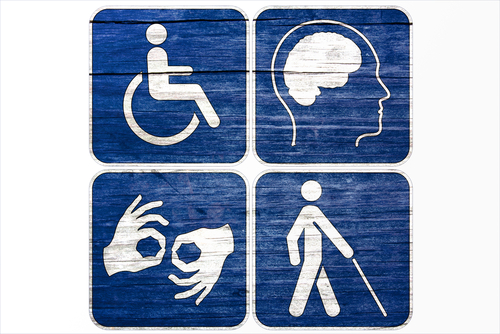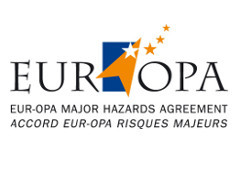Personnes handicapées
Including People with Disabilities in Disaster Preparedness and Response
22-23 October 2013, Paris

A Questionnaire on Disability Inclusive Disaster Risk Reduction has been developed and circulated in March 2013 in order to collect examples of good practice and already existing regulations and laws in the field. The replies to the questionnaire were included into a report which portrays the situation of people with disabilities in disaster preparedness and response, focusing on different practices, return of experiences, good examples and mentioning the legal issues and drawing attention to what can be done in the case of a disaster. The Report, together with the resulting Guidelines and Recommendations on Including People with Disabilities in Disaster Preparedness and Response were discussed and adopted by the Committee of Permanent Correspondents of the EUR-OPA Major Hazards Agreement on 24 October.
Presentations
- Thorsten AFFLERBACH, Council of Europe, Head of Social Cohesion and Integration Division
- Josef NEUMANN, Landtag NRW, Germany
Inclusion of People with Disabilities (German)
- Claudio DETOGNI, Independent Expert, Federsanità ANCI, National Office, Italy
- Magda ROOZE and Eva MUENKER-KRAMER, European Federation of Psychologists’ Associations (EFPA)
Contribution from the EFPA Disaster and Crisis Psychology Standing Committee
- Regina ERNST and Dirk BOENKE, Rehabilitation
- David SINGH, UNISDR
- Stepan BADALYAN, Vice-Chair, Committee of Permanent Correspondents of the EUR-OPA Major Hazards Agreement
- Prof. Stefanos DRITSOS, Earthquake Planning and Protection Organization (EPPO)
Earthquake Protection Policy for People with Disabilities
- Olga SHASHKINA, Ministry of Environment and Natural Resources Protection of Georgia
- Silvio SAGRAMOLA, Director, National Disability Information and Meeting Centre, Luxembourg
- Prof. David ALEXANDER, Institute for Risk and Disaster Reduction, University College London, UK
Disaster and people with disabilities: some key issues
- Prof. Duncan SHAW, Operational research and critical systems, Warwick Business School, UK
- Alexandros MAKARIGAKIS, Chief of Unit on Disaster Risk Reduction, UNESCO
Including People with Disabilities in Disaster Preparedness and Response
- Paola ALBRITO, Head of the United Nations Office for Disaster Risk Reduction (UNISDR) Europe
The International Day for Disaster Reduction - Living with Disability and Disasters
- Eric WEERTS, Emergency and Rehabilitation for Handicap International
Current approaches to including people with disabilities in disaster risk reduction
- Charlotte AXELSON and Luisa FENU, CBM
Good practices and Voices from the field
- Luk ZELDERLOO, European Association of Service Providers for Persons with Disabilities (EASPD)
People with disabilities in disaster: Preparedness and Response
- Dagmar GRESKAMP, Interessengemeinschaft Selbstbestimmt Leben
- Dingeman DE JONG, 2bsafe, The Netherlands
- Badaoui ROUHBAN, Global Risk Forum (GRF) Davos
Disaster resilience of people with disabilities: challenges

- Programme
- Report of the meeting
- Report on Including People with Disabilities in Disaster Preparedness and Response EN | FR
- Guidelines for Assisting People with Disabilities during Emergencies, Crises and Disasters EN | FR
- Recommandantion on the inclusion of people with disabilities in disaster preparedness and response EN | FR
- Press Release
- Council of Europe Disability Action Plan 2006-2015 EN | FR
- Ethical Principles on Disaster Risk Reduction and People’s Resilience EN | FR
- Improving DRR in certain vulnerable groups EN | FR
- Disability, a Citizenship issue EN | FR
- Council of Europe Poster
- UNISDR Disability Survey
Statement of Gabriella Battaini-Dragoni
on the occasion of the International Day for Disaster Reduction- Living with Disability and Disasters, 13 October 2013. (Statement)
Statement of Global Risk Forum Davos
related to the inclusion of people with disabilities in disaster preparedness and response. (Statement)


